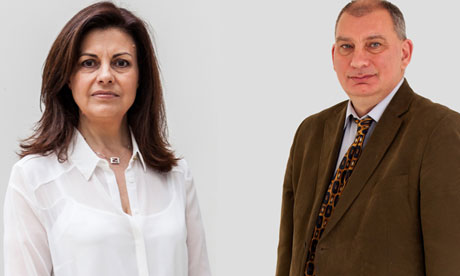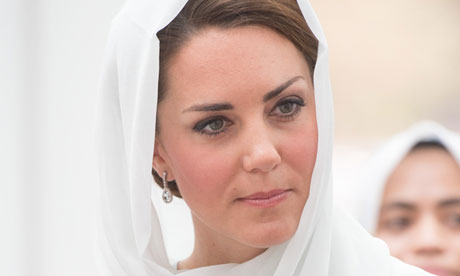A bullet-pointed, abbreviated list; everything I refer to below is covered in more detail elsewhere in this blog and/or handouts (many of which are also embedded within posts).
IPSO
There is very little change from PCC to IPSO, but there is some:
IPSO has exercised a new power (still no sanctions if papers refuse though) to insist on front page corrections: it has forced The S*n to do this over a false claim about Jeremy Corbyn, and the Daily Express (
in Dec 2016) for claiming English is dying out in schools; they have also forced The Times to do this.
The Editor's Code was
revised for 2016, now including headlines within Clause 1 (Accuracy)
Part of this revision was to explicitly require SWIFT resolution of complaints.
They have increased the non-industry representation on their board
They have shown a much greater willingness to consider third party complaints, something the PCC was criticised (by the Culture Select Committee) for routinely threatening to do (The Express '311 languages spoken in our schools' story about the decline of spoken English was one example)
They have been much more assertive over website content, notably including US editions - even more notably, this includes ruling against the Mail Online, the world's leading newspaper online and the newspaper group many accuse IPSO of being run by
PCC
There are very few examples to
convincingly argue that the press have been effectively regulated, but all of these points can be raised:
- the PCC consistently highlighted high 'satisfaction ratings' in their annual reviews
- despite all the contrary evidence, they did get fulsome praise from Tony Blair and David Cameron
- (and, when FINALLY responding to Calcutt's 1993 recommendation to replace the PCC with statutory regulation, the 1995 Tory gov praised the PCC)
- Prince William held a 'thankyou party' for the PCC and national editors (we'll consider this more later)
- by encouraging non-legal resolutions to disputes (ie, not the courts, expensive lawyers), they
arguably made resolution more attainable for ordinary people
- a glib argument, rather hypocritically used by a press who leave to scream for state regulation of TV/film/ads/web,
but still important: the press remains (
notionally...) free from state/political interference; we have a 'free press' in the UK unlike many authoritarian nations (China etc)
- a linked point: it was/is self-funding: it costs the taxpayer
nothing (ditto the BBFC), unlike OfCom (around £100m a year)
- the PCC argued that the numbers of cases 'resolved' itself indicated success, and that every correction or removal of article/picture proves their effectiveness
- three notable improvements from the PCC over the GCP and Press Council that preceded it: (1) lay membership become dominant; this wasn't
just a press body judging the press, but also many non-press outsiders (2) it had a published 'Editor's Code' which set out the grounds on which complaints could be made and on which they would be judged [the PC did this in their final year, but essentially neither the GCP nor PC made the basis of judgements, or an open set of standards, known] (3) as is now accepted practice across the board for media regulators (the BBFC in particular highlights this, labelling their published information 'BBFC Insight' and specifically proclaiming this as a service for parents), the PCC publish their Code and judgements on a website, as well as detailed annual reports
There are few respectable sources who will offer up arguments for the PCC specifically, though there are more who will argue the wider point in favour of self-regulation; I recommend in particular looking for the 'Peter Preston' tag in the tagcloud. A former Guardian editor who also briefly served on the PCC, he continues to pen articles strongly advocating self-regulation, and even defending the record of the PCC. He insists that they do a better job than statutory regulators like OfCom. The PCC's website itself naturally contains useful material arguing that it is an effective regulator.
The counter-argument is overwhelming, but you mustn't make the mistake of simply ignoring the points above. Its also worth stressing that the apparent failure of self-regulation isn't a direct argument for statutory regulation: it is simply a reflection that the form and nature of the self-regulation we have had has been ineffective. The GCP, PC and PCC have all been largely
reactive bodies, mainly responding to complaints (as explicitly highlighted in the PCC's very name), although the PCC did
occasionally intervene when contacted with pre-publication concerns by those who would be impacted by planned articles. It also remained too dominated by press figures, despite the numbers of lay people involved. If a tougher regime, with the power to fine (as Leveson recommended, but the press rejected, and IPSO won't have), to enforce corrections within a timescale and on a page/size of its choosing, or even, as had been discussed, inflicting tax on papers who repeatedly breached the agreed standards or, like Desmond, just refused to come under the regulatory system ... then self-regulation may very well be effective.
So, before going into the many reasons for and examples of ineffective press self-regulation, do remember that this is not necessarily proof that self-regulation doesn't work - just that the style and approach of a system that, for example, ignores issues around press ownership, is (and surely will be with the not-so-different IPSO?) ineffective, as can clearly be seen by the consistently poor standards of our national press.
















